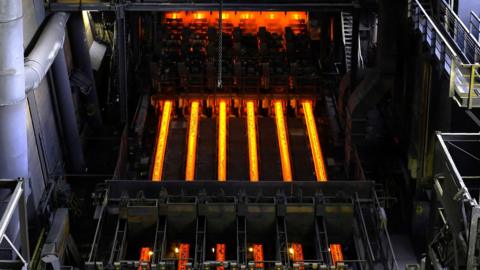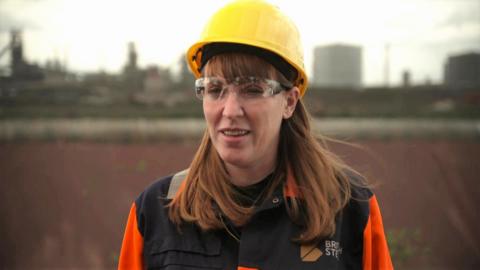The Scunthorpe plant employs 2,700 people and is the last site in the UK that can produce virgin steel - a high-grade product which is needed for large construction projects.
Without the plant, the UK would be the only member of the G7 group of leading economies without the ability to make virgin steel - which the government believes would pose a risk to the country's economic security.
The site produces the majority of rail tracks used by Network Rail. The company said it does not expect "any impact on the continued delivery of reliable rail services" as it built up a stockpile of steel in anticipation of the plant's possible closure.
The virgin steel made in Scunthorpe is also critical for large-scale infrastructure developments, such as building nuclear power plants like the ongoing Hinkley Point C project in Somerset.
However, in March, Jingye said the Scunthorpe site was losing £700,000 a day, which it said was "no longer financially sustainable", and the company began a consultation on job cuts.
Talks with Jingye last week failed to produce a breakthrough. The government said the company had demanded more than double the government's original £500m offer with few guarantees it would keep the plant open.
Speaking about the company's actions on Sunday, Reynolds said "it might not be sabotage, it might be neglect". Rayner said there was "no evidence" of corporate sabotage.
The Conservatives have criticised the government for not stepping in sooner to save the plant.
Tory shadow business secretary Andrew Griffith said the party had supported the emergency law because "it's the least worst option on the table".

